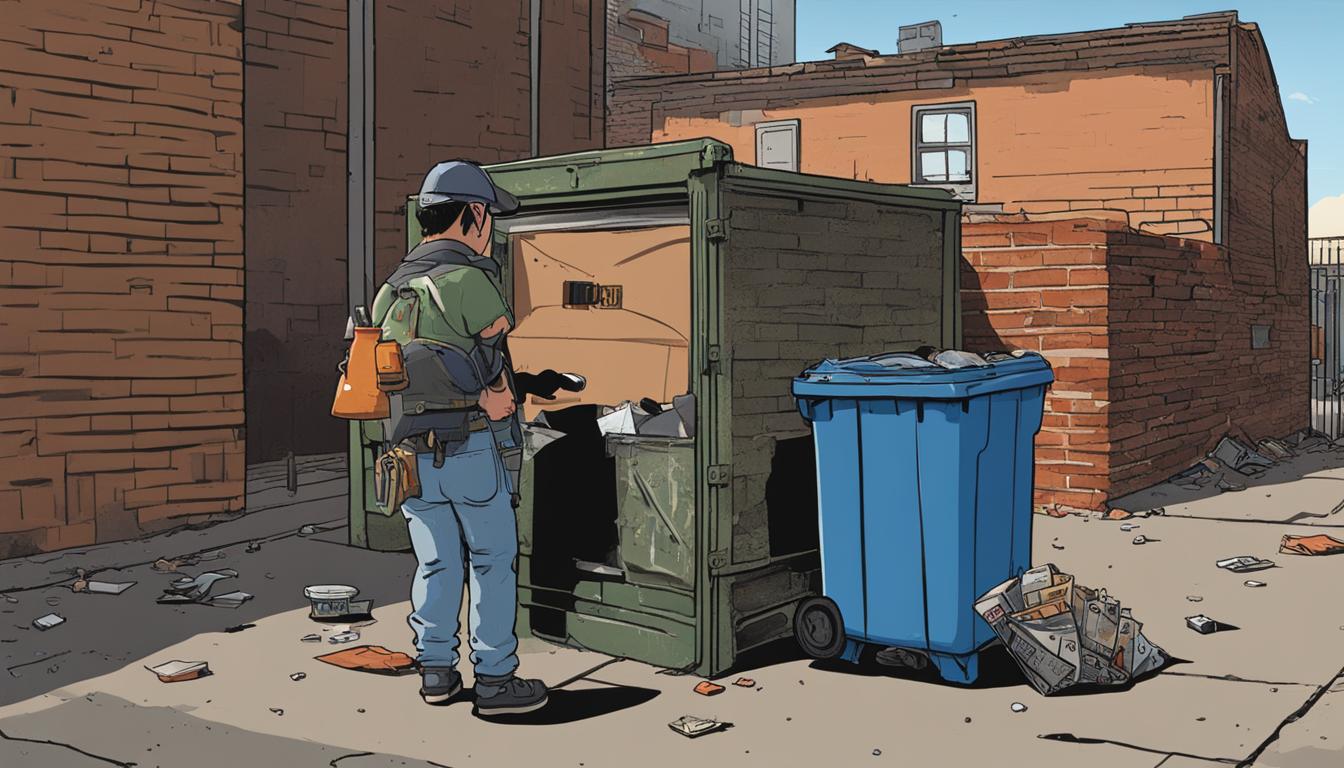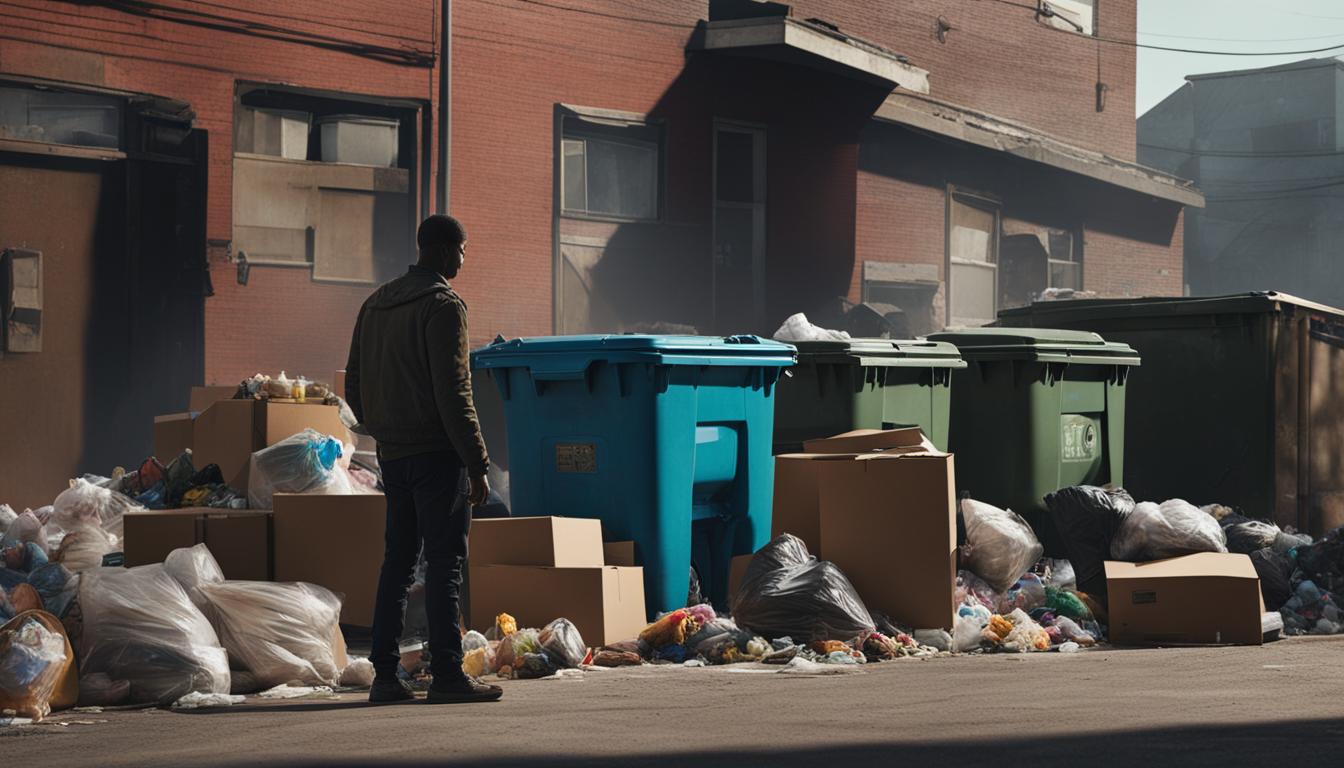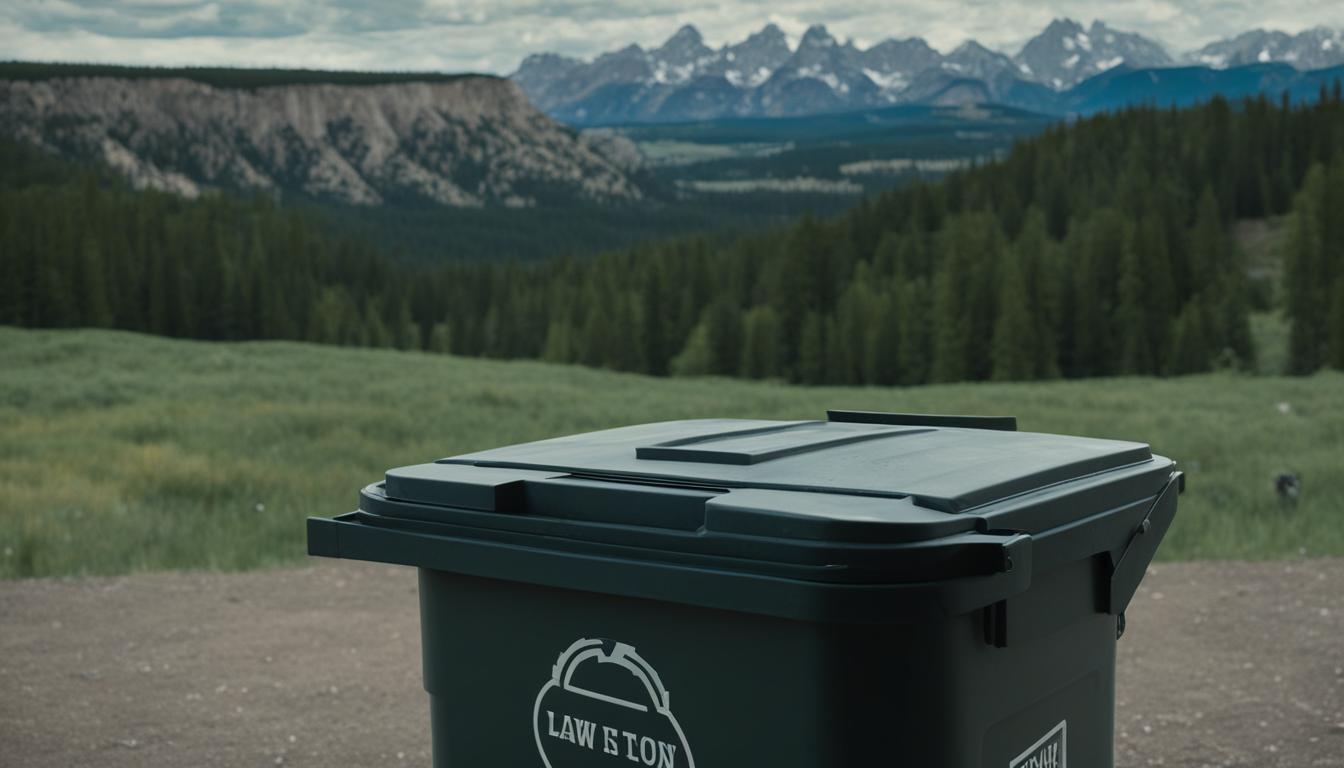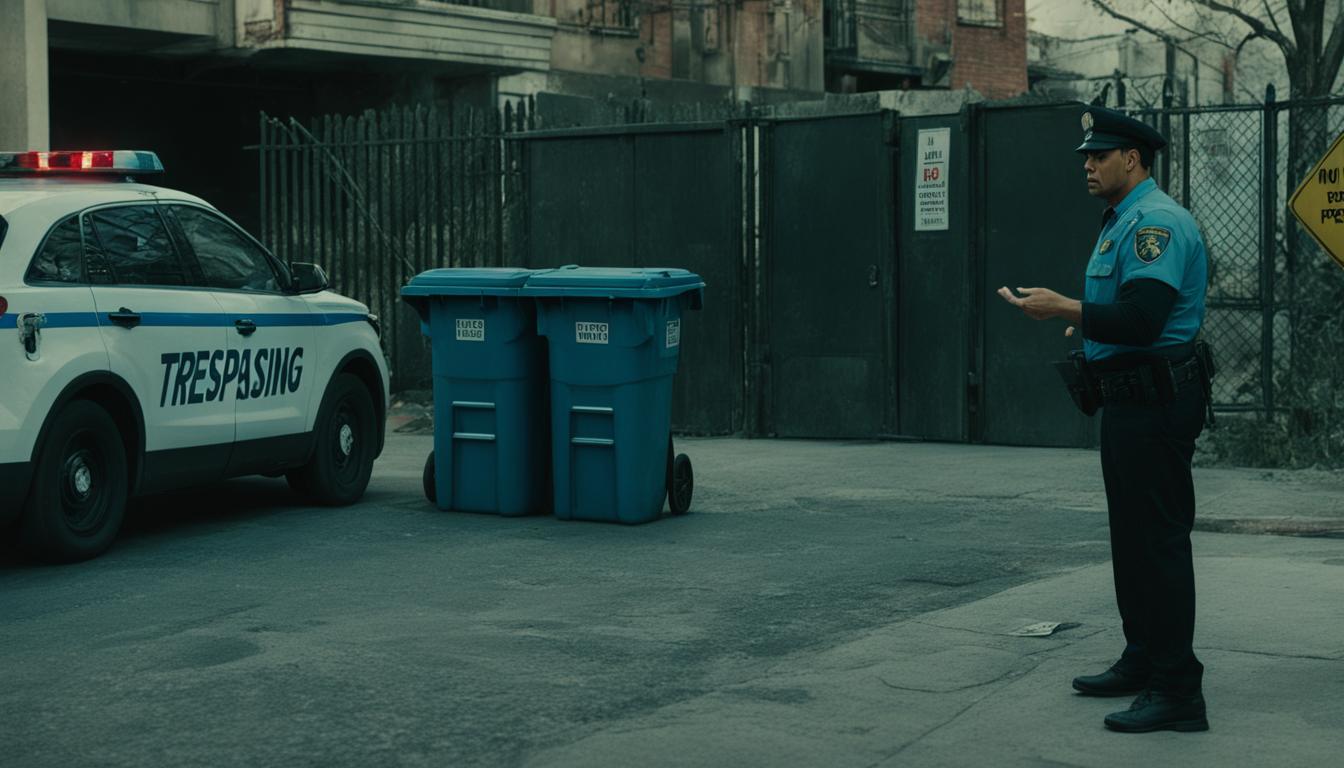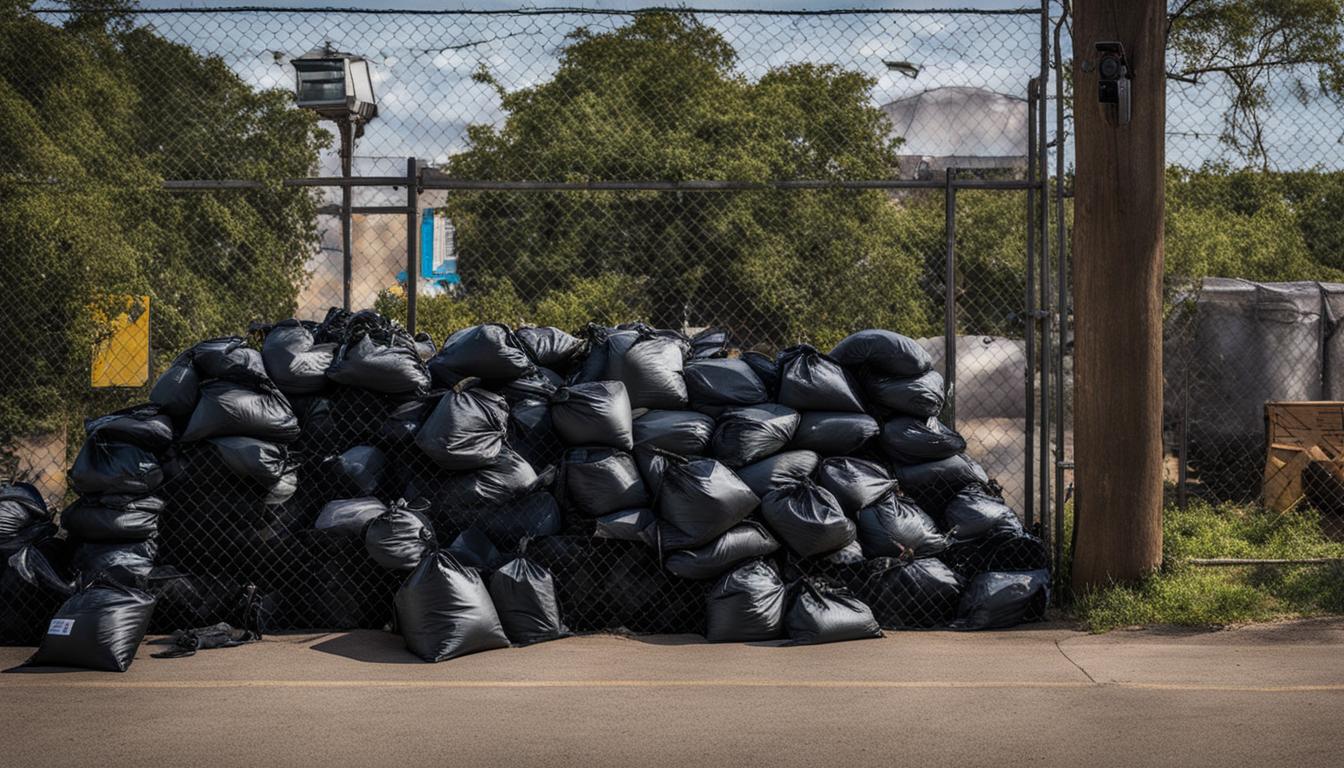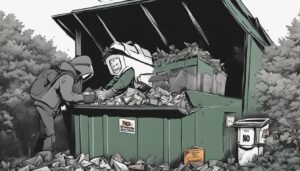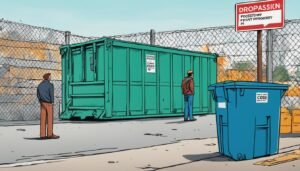Disclosure: This Post Contains Affiliate Links; We earn a commission on purchases.
Have you ever wondered about the legality of dumpster diving in New Mexico? Dumpster diving is the practice of salvaging discarded items from dumpsters and trash containers. It’s a controversial activity that raises questions about legality, property rights, and environmental concerns. In this article, we will explore the dumpster diving laws and regulations in New Mexico to help you understand the legal landscape.
When it comes to dumpster diving in New Mexico, the Recycling and Illegal Dumping Act [74-13-1 NMSA 1978] plays a significant role. This act defines terms such as “illegal dumping” and “illegal dumpsite” and provides guidelines for recycling and waste management. Understanding the specific regulations in New Mexico regarding dumpster diving is crucial to ensure you stay on the right side of the law.
Key Takeaways:
- Dumpster diving in New Mexico is governed by the Recycling and Illegal Dumping Act.
- While dumpster diving is not explicitly addressed in the act, trespassing laws may apply if accessing dumpsters on private property without permission.
- Potential consequences of dumpster diving include trespassing charges and hazards such as biohazardous waste.
- Dumpster diving can align with environmental ideals but should be done in accordance with local regulations.
- Respecting private property rights and obtaining permission are essential when accessing dumpsters on private premises.
The Definition of Dumpster Diving in New Mexico
When it comes to dumpster diving in New Mexico, there are specific considerations to keep in mind. While the Recycling and Illegal Dumping Act doesn’t explicitly address dumpster diving, it falls under the definition of “illegal dumping” if it involves the improper disposal of trash, solid waste, or scrap tires in violation of the Solid Waste Act or the Recycling and Illegal Dumping Act.
While the act doesn’t specifically regulate dumpster diving, individuals should be aware that trespassing laws may apply if they enter private property to access dumpsters without permission. This highlights the importance of respecting private property rights and obtaining proper permission when engaging in dumpster diving activities.
It’s worth noting that dumpster diving can serve as an avenue for recycling and reducing waste, which aligns with environmental ideals. However, it is essential to abide by local laws and regulations regarding waste management and follow guidelines for accessing dumpsters legally.
Understanding the Legal Landscape
Given the ambiguity surrounding dumpster diving laws and restrictions in New Mexico, it is crucial to familiarize yourself with the specific regulations in your area. By doing so, you can ensure that your dumpster diving activities stay within the bounds of the law.
Here are a few key points to consider when it comes to dumpster diving in New Mexico:
- Dumpster diving may fall under the definition of “illegal dumping” in certain situations.
- Trespassing laws can apply if individuals access dumpsters on private property without permission.
- Respecting private property rights is essential when engaging in dumpster diving activities.
Always prioritize safety and be mindful of potential hazards while diving into dumpsters in New Mexico. By understanding the legal framework and adhering to guidelines, you can make informed decisions and minimize any potential risks associated with dumpster diving.
Potential Consequences of Dumpster Diving in New Mexico
The legality of treasure hunting in New Mexico dumpsters raises questions about dumpster diving guidelines and the need for dumpster diving permits. While dumpster diving for personal use or recycling purposes may be viewed as a form of environmentalism, it is crucial for individuals to be aware of the potential legal and safety risks involved.
Dumpster divers could face trespassing charges if they enter private property without permission. It is always advisable to obtain permission from property owners before accessing their dumpsters. Alternatively, individuals can seek out public dumpsters that are accessible for recycling purposes, reducing the risk of trespassing and potential legal repercussions.
In addition to legal consequences, dumpster divers should also exercise caution due to potential hazards they may encounter. Biohazardous waste, broken glass, and unsanitary conditions are just a few examples of the risks associated with dumpster diving. Taking necessary precautions such as wearing protective gloves and clothing can help minimize these dangers.
Remember, the legality of treasure hunting in New Mexico dumpsters is subject to specific guidelines and regulations. Dumpster divers should familiarize themselves with local laws and waste management policies to ensure they engage in lawful and responsible practices.
Here’s a summary of potential consequences:
| Potential Consequences | Description |
|---|---|
| Trespassing Charges | Dumpster divers may face trespassing charges if they enter private property without permission. |
| Potential Hazards | Biohazardous waste, broken glass, and unsanitary conditions pose risks to dumpster divers. |
| Legal Repercussions | Dumpster diving without adhering to specific guidelines and regulations can result in legal consequences. |
By understanding the potential consequences and taking necessary precautions, individuals can make informed decisions about dumpster diving in New Mexico while mitigating legal and safety risks.
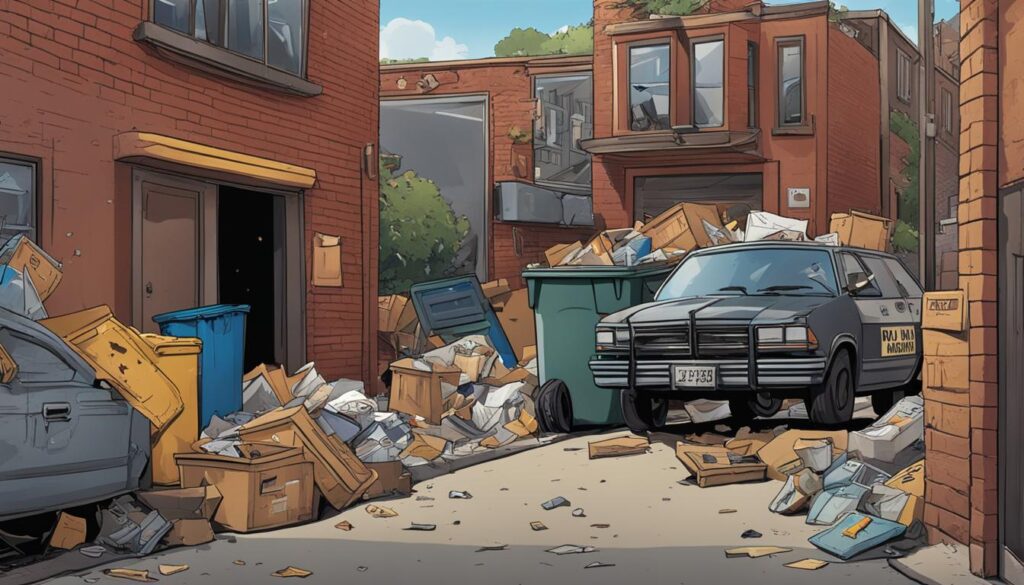
Dumpster Diving and the Environment in New Mexico
Dumpster diving in New Mexico can be viewed as a practice that aligns with environmental ideals. By salvaging usable items from dumpsters, individuals can reduce waste and promote recycling. However, it is important to note that dumpster diving should be done in accordance with local laws and regulations. Recycling facilities and authorized collection points should be utilized whenever possible to ensure proper waste management practices. Additionally, individuals should respect private property rights and obtain permission before accessing dumpsters on private premises.
By dumpster diving responsibly, individuals can contribute to the reduction of waste and promote a more sustainable lifestyle. Recycling usable items found in dumpsters helps reduce the strain on landfills and conserves valuable resources. However, it is crucial to follow the guidelines set forth by local authorities to ensure compliance with relevant laws and regulations.
Dumpster Diving Guidelines in New Mexico
When engaging in dumpster diving in New Mexico, it is essential to adhere to the following guidelines:
- Obtain proper permits, if required: Depending on the location and nature of dumpster diving activity, individuals may need to obtain permits from local authorities. These permits ensure that the activity is conducted legally and within designated areas.
- Respect private property: Always seek permission from property owners before accessing dumpsters on private premises. Trespassing laws may apply if individuals enter private property without permission, regardless of whether it is for dumpster diving purposes.
- Utilize authorized collection points: Look for recycling facilities and authorized collection points in your area. These designated areas are specifically designed for proper waste disposal and recycling, ensuring compliance with waste management regulations.
- Exercise caution: Dumpster diving can involve certain risks, such as biohazardous waste, broken glass, or unsanitary conditions. Be mindful of these hazards and take appropriate precautions, such as wearing gloves and closed-toe shoes, to protect yourself.
By following these guidelines, dumpster divers can engage in this activity in a responsible manner that contributes to the environment while respecting the law and property rights.
| Benefits of Dumpster Diving: | Laws and Regulations: |
|---|---|
| Reduces waste in landfills | Follow local recycling and waste management laws |
| Promotes recycling | Obtain necessary permits, if required |
| Supports sustainable lifestyle | Respect private property rights |
Conclusion
Dumpster diving is a controversial activity that raises questions about its legality, property rights, and environmental impact in New Mexico. While there are no specific laws that explicitly address dumpster diving in the state, individuals should be mindful of the potential legal and safety risks involved.
Respecting private property rights is crucial, and permission should always be obtained before accessing dumpsters on private premises. It is advisable to prioritize proper waste management practices and utilize authorized recycling facilities whenever possible.
By familiarizing themselves with the regulations and guidelines in New Mexico, individuals can make informed decisions about dumpster diving, ensuring they minimize any negative impact on the environment and the community as a whole.
Source Links
- https://en.wikipedia.org/wiki/Dumpster_diving
- https://law.justia.com/codes/new-mexico/2006/nmrc/jd_74-13-3-1b753.html
- https://www.krqe.com/news/dumpster-diving-duo-blamed-for-chaos-at-santa-fe-university/

Subscribe to Our Newsletter

